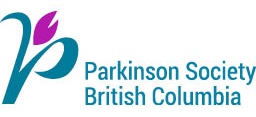
Bequests
Bequests: You may choose to leave a gift in your Will or trust
What is a Will? A Will is an important legal document which directs how your property is disposed after death. Everyone should have a valid, current Will. By naming Parkinson Society British Columbia in your Will (often called a bequest) you can designate a specific sum of money or designate a portion of your entire estate after providing for loved ones. Alternately, you may create a contingent bequest, payable to Parkinson Society British Columbia only if a spouse and/or children do not survive you.
To create a bequest:
- Sample wording for a Specific Cash Bequest: “I give, devise and bequeath the sum of ($amount) to Parkinson Society British Columbia in the City of Vancouver, British Columbia to be used for such of the objects and purposes as the Board of Directors shall from time to time determine.”
- Sample wording for a Residual Bequest: “I give the residue of my estate (or percentage of the residue of my estate) to Parkinson Society British Columbia in the City of Vancouver, British Columbia to be used for such of the objects and purposes as the Board of Directors shall from time to time determine.”
- Sample wording for a Contingent Bequest: “If neither (name of primary beneficiary) nor (name of alternate beneficiary) survives me for 30 days, then I give (describe amount of cash, property, percentage of residue or other gift) to Parkinson Society British Columbia in the City of Vancouver, British Columbia to be used for such of the objects and purposes as the Board of Directors shall from time to time determine.”
Gifts of Registered Plans
What are gifts of registered plans?
These types of gifts ensure that PSBC will receive the gift without having to pass these assets through an estate. A registered retirement plan is a tax deferred savings plan, such as a Registered Retirement Savings Plan (RRSP) or Registered Retirement Investment Fund (RRIF). You will receive a tax benefit when you invest money in the plan and any interest that is earned is tax free.
Often the money that has accumulated in an RRSP or RRIF remains untouched and only the minimum amount is withdrawn each year in retirement. Upon your death, your estate can be subject to a large tax bill from the untouched income and interest remaining in the RRSP or RRIF. Only when you cash the RRSP or RRIF, usually during retirement when your income is reduced, are your investment and any accumulated interest treated as income and subject to tax.
By gifting the total proceeds of the registered plan to Parkinson Society British Columbia, a charitable contributions receipt is issued and is available to be applied against 100% of the net income on your final tax return. If the receipt exceeds the taxable income of your estate, the balance can be applied against up to 100% of your taxable income of the year preceding your death. With this option, at the time of your death, the proceeds of the plan are donated to the Society. The executor of your estate will include the full balance of the registered plan in your final tax return. Then your executor will receive a charitable contributions receipt from Parkinson Society British Columbia for the same amount.
To create this type of gift, you must designate Parkinson Society British Columbia as the beneficiary of the registered plan’s assets. You can do this with an officer of the financial institution that is administering the plan.
Charitable Remainder Trusts and Annuities
Charitable Remainder Trusts and Annuities: you may make a future gift and receive lifetime income for you and your spouse.
What are charitable remainder trusts and charitable gift annuities?
Charitable remainder trusts provide flexibility when planning your estate, and a means of directing your assets and future gifts to Parkinson Society British Columbia. These charitable remainder trusts may be funded with cash, securities or real estate. Assets are placed with a trustee and you receive the income generated by the assets in trust, according to the terms set out at the time the trust is established. The capital remains intact, however, and PSBC receives the amount placed in trust after your death. It is also possible to establish a trust that provides income to your surviving spouse. In this instance, the property would pass to PSBC only after both spouses have died.
Because charitable remainder trusts are irrevocable gifts, the donor is usually entitled to a donation receipt when the trust is created. The receipt amount is based on the present value of the remainder interest (usually 20-60% of the value of the property if real estate), determined by the fair market value of the assets, interest rates, the donor’s age, and the specifics or duration of the trust.
A charitable gift annuity offers you the ability to make a significant gift while enjoying income for life that is largely tax exempt. The benefit to you is a safe, secure stream of income that his largely tax-exempt. In addition, you will receive a charitable tax receipt for the charitable portion which may be applied for tax relief for up to five years. Note that this gift is best suited for individuals who are 65 years of age or older.
Gifts of Real Estate
Gifts of a future interest in real estate
What are gifts of real estate? You may give a gift of real estate outright (today) or upon death. When you consider donating a final gift of your residence, vacation home or other real estate parcel to Parkinson Society British Columbia, you may continue to use and occupy the donated property for the duration of your life, or the life of someone you designate. During your lifetime(s), you will be treated as the owner(s) of the property but you will qualify for an immediate tax deduction.
Gifts of Life Insurance
Beneficiary Designation: You may name PSBC as the beneficiary of your life insurance policy, RRSP or RRIF
- What are gifts of life insurance? These types of gifts may provide you with an opportunity to support Parkinson Society British Columbia (PSBC) and also reduce your estate’s tax bill. Name PSBC as a beneficiary of a new or existing life insurance policy. You may name Parkinson Society British Columbia either as a primary beneficiary of all or part of the proceeds, or as a contingent beneficiary in the event that your primary beneficiaries predecease you. While PSBC benefits from the possibility of an eventual gift, this option offers no immediate tax benefits since the Society does not own the policy. If PSBC becomes the ultimate beneficiary of the policy, your estate receives a charitable receipt. Death benefit proceeds will be paid directly to the charity, thus avoiding the claims of creditors, other beneficiaries and probate fees.
To create this designation, complete the Beneficiary Change form with your insurance company.
Gifts of Securities
Visit our gifts of securities page to learn more.
Parkinson Society British Columbia understands that supporters like you consider estate and gift planning to be a strictly confidential matter. Please be assured your call will be handled in a manner that respects your privacy and maintains confidentiality.
Note: Information in these pages is not intended as specific financial planning or legal advice. You should always consult your legal advisors, financial planners and family members when considering a planned gift.
Have questions? Please don’t hesitate to contact us!

